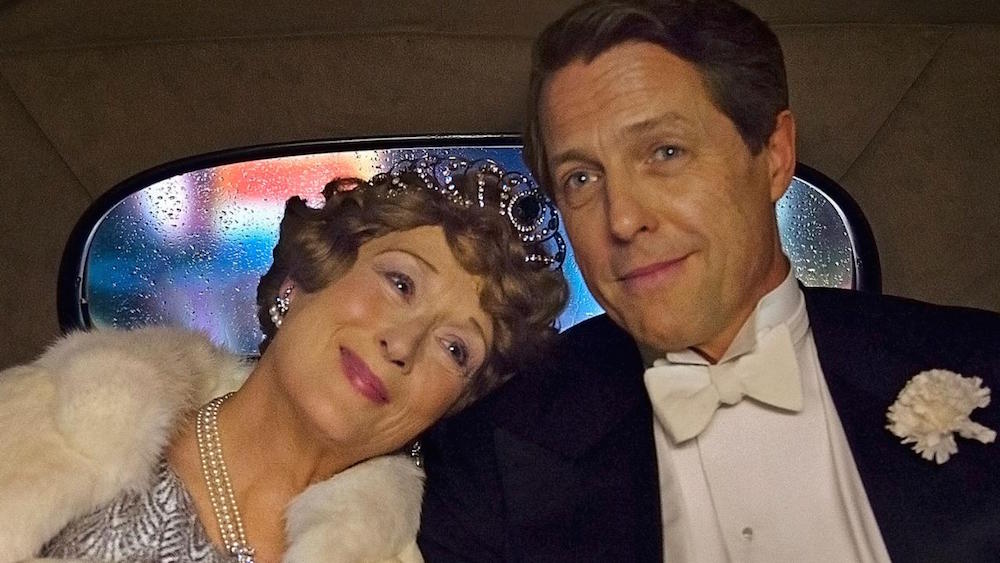Score: B
Director: Stephen Frears
Cast: Meryl Streep, Hugh Grant, Simon Helberg
Running Time: 110 min
Rated: PG-13
At a time when the film landscape looks increasingly overcrowded with superhero movies, reboots, and dreary Oscar fare, Florence Foster Jenkins is a breath of fresh air. This well-meaning film, much like its protagonist, is enjoyable and clearly full of heart, even if it doesn’t always land the emotional punches it craves.
Florence Foster Jenkins is based on the woman of the same name, played by the incomparable Meryl Streep. Set in 1944 New York City, Florence is a rich heiress and distinguished patron to the musical arts. Her husband, a former actor named St. Clair Bayfield (Hugh Grant), helps organize garden parties and performances and everything in between. When she hires new pianist Cosme McMoon (Simon Helberg) to accompany her during his singing lessons, her dream of performing at Carnegie Hall become a priority again. There’s only one problem – her voice is terrible, and she’s the only one that doesn’t know it.
Streep and Grant each give memorable performances that lift the film to new heights. While Streep always turns in great performances, it was Hugh Grant that impressed me most. Grant has been out of the leading man spotlight for some time so it was almost jarring to see him back in a well-fitted suit and being his usual charming self (albeit with a few more wrinkles). It felt refreshing to see him charming Meryl Streep, someone actually his own age (technically older!) for once. The heart of the film lies in the relationship between St Claire and Florence and Streep and Grant give it their all and it catches you hook, line, and sinker. Helberg, along with some funny side characters, round out the cast to show what New York City looks like outside of Florence and St Claire’s marriage.
Without these stellar performances, the film falls flat. In many ways, the idea that a wealthy woman could pay her way to selling out Carnegie Hall can be seen as indulging the wealthy excessively. We’re supposed to cheer as St Claire pays off patron after patron and people politely sit through Florence’s concerts simply because she’s too powerful for them to react any other way. Florence Foster Jenkins couches it in a way that emphasizes kindness towards someone as philanthropic and genuine and fragile as Florence. It insists the bribes are just a manifestation of St Claire’s devotion to his wife. The truth is probably a mix of both sides but the film largely ignores the concurrent message to focus on the warm and fuzzies.
That’s not to say that Florence Foster Jenkins isn’t fun to watch. It’s a sweet little film full of great performances and an interesting look at how two people, so completely devoted to one another, can have such complicated relationships with each other. It’s about loyalty and taking risks. I just wish it also wasn’t about rich people getting exactly what they want by throwing money around. But hey, when those rich people are played by Meryl Streep and Hugh Grant, both decked out in vintage 40s costumes and tuxes, who am I to complain?

